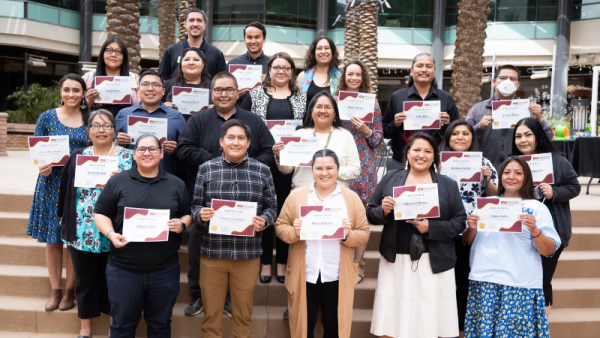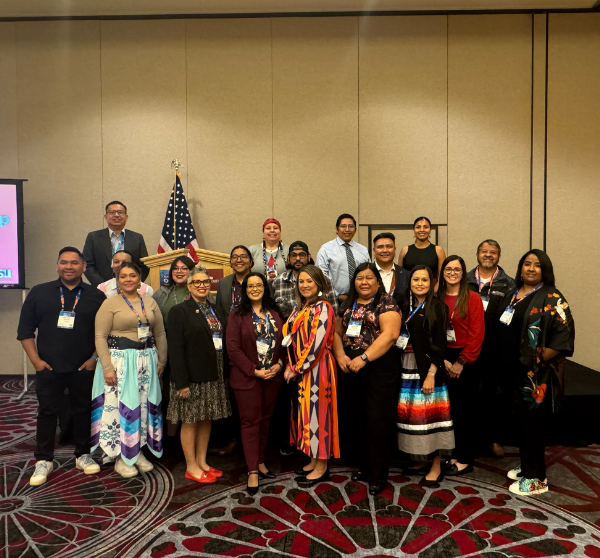We support Tribal sovereignty through examination, exploration, and elevation of issues impacting communities and American Indian and Alaska Native peoples.
The American Indian Policy Institute is an Indigenous-led and staffed research institute at Arizona State University whose work supports Tribal communities and Indigenous peoples nationwide. We do this by creating academic research focused on key issues in Indian Country, and by analyzing and developing policy solutions on the key issues of Indian Country, and with engagement and capacity-building programs within an ecosystem of lifelong learning.
AIPI’s core commitment to Indian Country focuses on new directions and initiatives centered on sovereignty, community service, dedication to research and learning through public service, and supporting tribal communities and leaders in finding solutions while allowing AIPI to be part of the solution in shaping new strategies for Indian Country.
We strive to provide thought leadership on American Indian policy in order to enhance our local impact and social embeddedness in serving Native Nations. By providing progressive policy analysis, research, and executive education. We seek to elevate Native Nations in local, regional, national, and global communities while creating a dynamic dialogue through multiple communication modalities.






